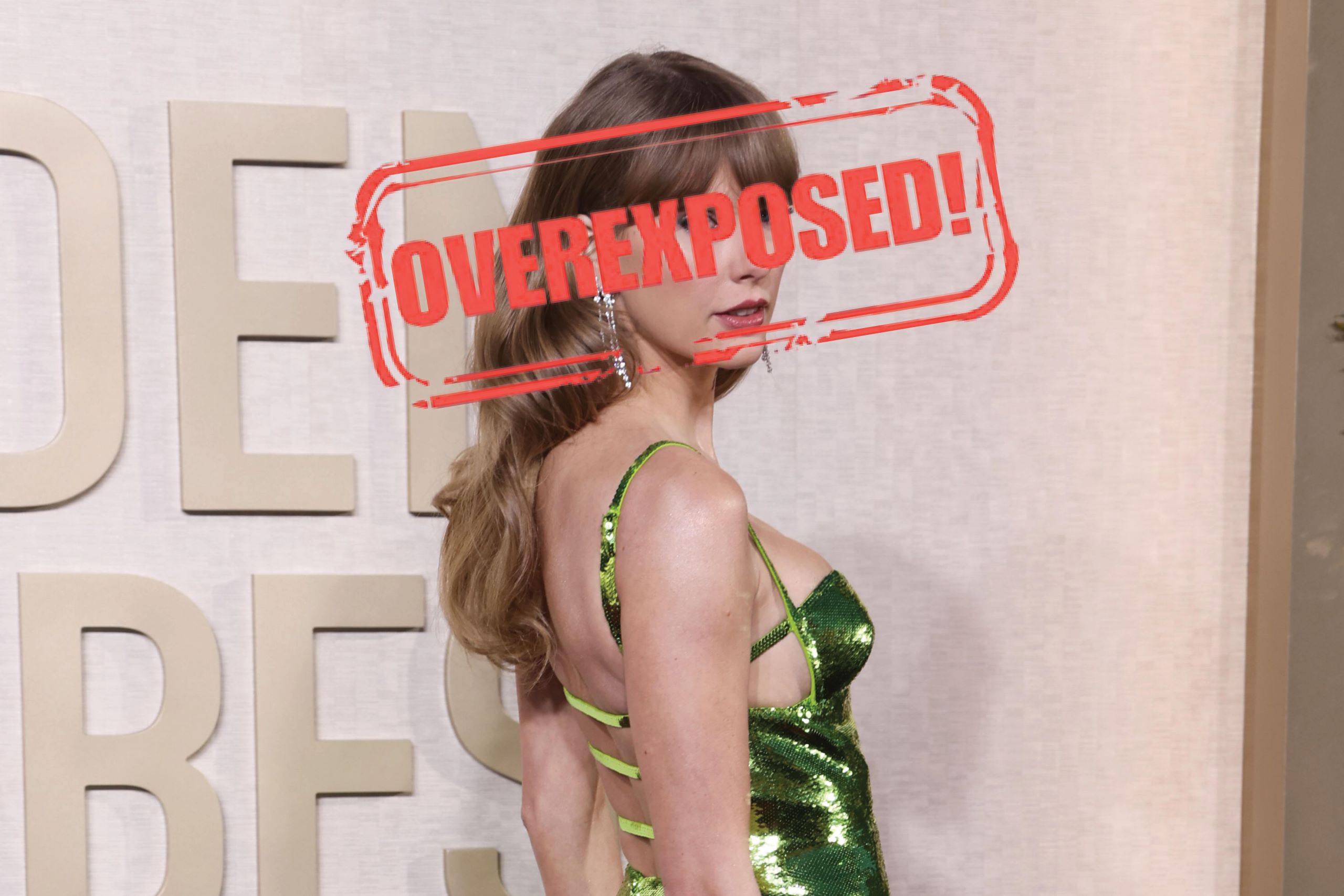Pretend you’re on a first date with me. We’ve just sat down, exchanged pleasantries, and you’ve hardly had time to open the menu before I, as charming as ever, forcefully inquire about the one most pressing matter on my mind: who is the most famous person you can think of?
It is a question with right and wrong answers, mind you. You could argue it’s Jesus Christ. Other acceptable answers include, but are not limited to: Marilyn Munroe, Michael Jackson, any of The Beatles (except Ringo.) But let’s say you’re limited to modern day stars; you can argue this, that, or the other, but within a few minutes you’re going to mention Taylor Swift.
Taylor Swift’s 2023 was an unprecedented year of acclaim and success for someone who was already pretty damn famous. She shattered touring records, released two albums, charted three songs (from three different albums) at number one on Billboard, garnered historic box office scores for her concert film, and made headlines for mere sightings at American football games. As a cherry on top of this media saturation sundae, she concluded the year by being named Time magazine’s 2023 Person of the Year; there was, quite literally, no form of media left unscathed by Swift’s total dominance in 2023. And, by all accounts, that’s just the way she likes it.
As the pop culture pendulum swings forth, however, so too must it swing back. Daily Beast’s Obsessed column went viral earlier this month for running a piece entitled “2023 was the year Taylor Swift became insufferable,” which criticised Swift for perceived self-aggrandising comments made in her Time interview. Swift’s omnipresence in news and social media exacerbated the qualities that made her tiring, said author Coleman Spilde.
Spilde is not the only one feeling Swift fatigue. Huffington Post published a similar piece in November analysing Swift’s proximity to celebrity overexposure. Overexposure comes when a celebrity is so ubiquitous that the public grows weary of seeing or hearing about them.
Lynn Zubernis, a psychologist researching fandom, told Huffington Post: “Familiarity is part of what drives fandom – we’re wired to attach to familiar faces, whether they’re offline or on our screens – but there’s a limit to how much repetition we can tolerate.” And, as Swift’s own Bejeweled states: “Familiarity breeds contempt.”
However, is this a real problem for someone as astronomically successful as Swift? Her superfans hardly mind, and her sales are yet to appear affected.
Overexposure has been levelled at celebrities like Jennifer Lawrence, who fronted two blockbuster film franchises in the mid-2010s and Anne Hathaway, whose insistent 2013 Oscar campaign for Les Mis soured the sweetheart image she touted at the time. Swift herself experienced this in 2016 and would use the backlash, also partially fuelled by her public feud with Kanye West, to inspire her reputation album (which, suspiciously, is speculated to be the next re-recording due for release).
What do these names have in common? Well, they’re all women, which speaks to the nature of the phenomenon. The Huffington Post speculates it is almost always rooted in misogyny when applied to female celebrities – but they also are all still successful. Lawrence and Hathaway have starred in successful films in lead roles in the last year, and Swift is still on top of the world.
Swift’s Person of the Year interview notes that while she felt cancelled by the amount of ire directed towards her in 2016, she did not actually get cancelled in the commercial sense. reputation sold two million copies in its first week and Swift never ceased to be able to sell out a show.
Of course, having the world say that it is sick of you doesn’t feel good. The millions made in the process of getting there might make it feel better, though.
It should come as a badge of honour to be considered overexposed; it requires a level of success and popularity that is unfathomable to all but few. Sure, Swift’s next album might sell a couple hundred thousand fewer copies, but that’s a drop in the bucket compared to her millions of monthly listeners, more of which crop up each day.
So, is it possible to be too famous? If money could talk, it would almost certainly say no.
I realise suddenly that I am alone at the table. You, my date, have left. That’s what I deserve for overexposing myself, I guess.


I real lucky to find this internet site on bing, just what I was looking for : D also saved to favorites.